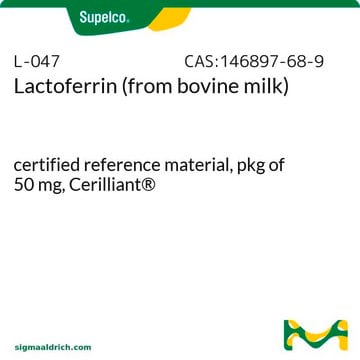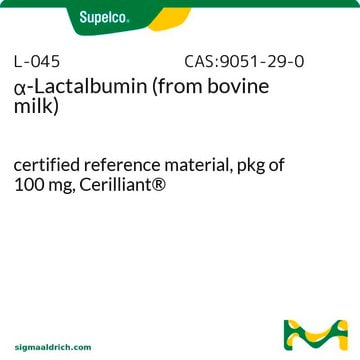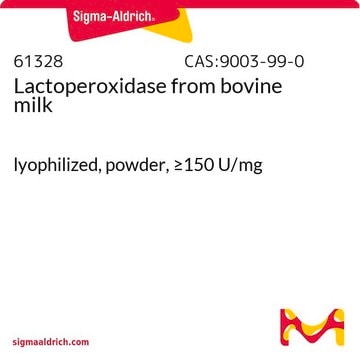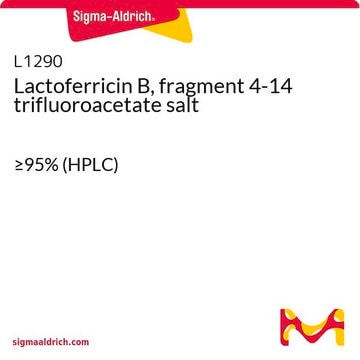L9507
Lactoferrin from bovine milk
≥85% (SDS-PAGE)
Sinónimos:
Bos d LF, Lactotransferrin
About This Item
Productos recomendados
biological source
bovine milk
Quality Level
assay
≥85% (SDS-PAGE)
form
powder
mol wt
~87 kDa
technique(s)
fractionation: suitable
solubility
H2O: soluble 10 mg/mL
UniProt accession no.
storage temp.
2-8°C
Gene Information
cow ... LTF(280846)
¿Está buscando productos similares? Visita Guía de comparación de productos
Application
Biochem/physiol Actions
Storage Class
11 - Combustible Solids
wgk_germany
WGK 3
flash_point_f
Not applicable
flash_point_c
Not applicable
ppe
Eyeshields, Gloves, type N95 (US)
Elija entre una de las versiones más recientes:
Certificados de análisis (COA)
¿No ve la versión correcta?
Si necesita una versión concreta, puede buscar un certificado específico por el número de lote.
¿Ya tiene este producto?
Encuentre la documentación para los productos que ha comprado recientemente en la Biblioteca de documentos.
Los clientes también vieron
Nuestro equipo de científicos tiene experiencia en todas las áreas de investigación: Ciencias de la vida, Ciencia de los materiales, Síntesis química, Cromatografía, Analítica y muchas otras.
Póngase en contacto con el Servicio técnico















